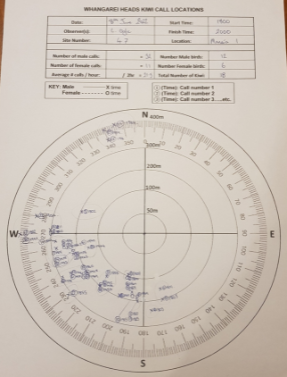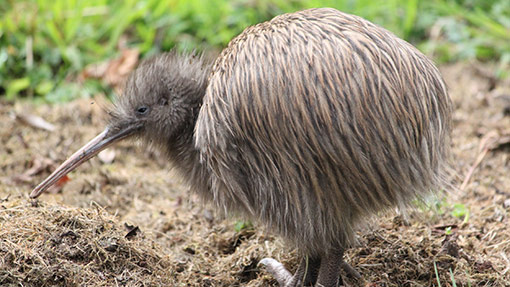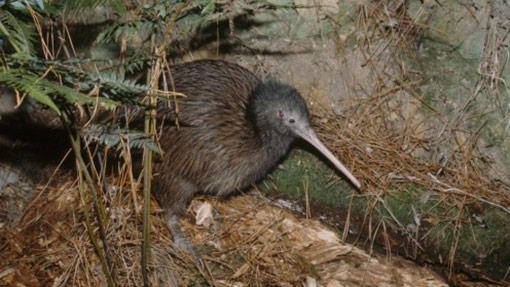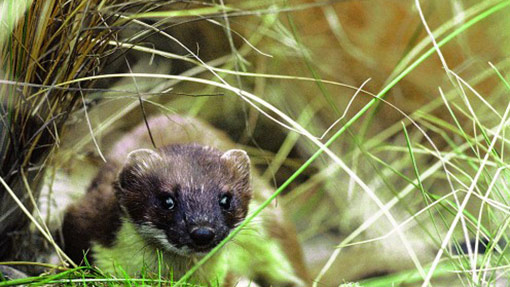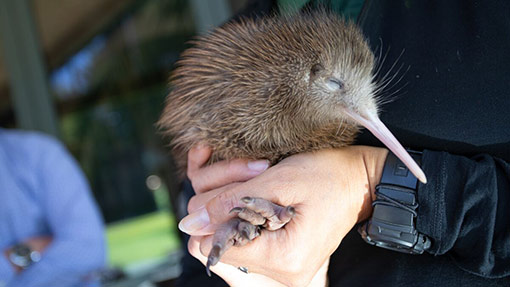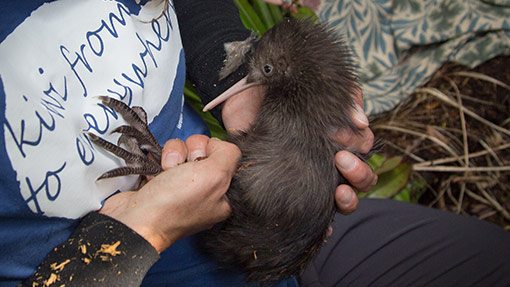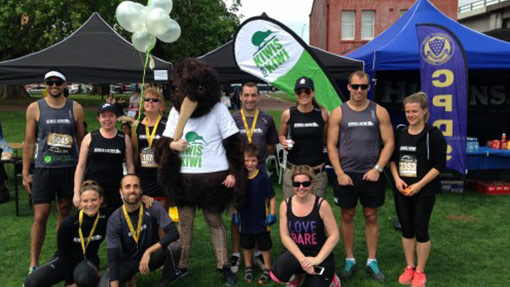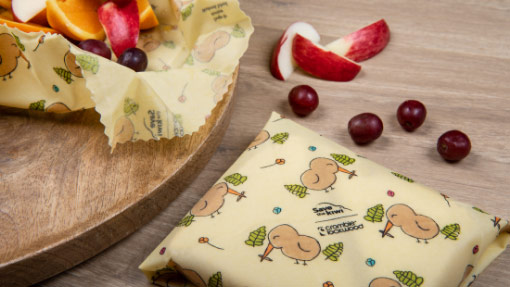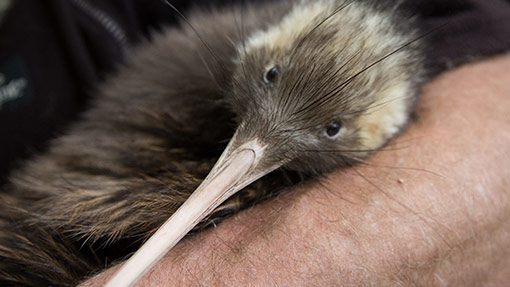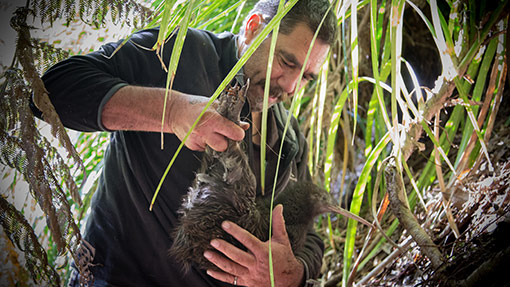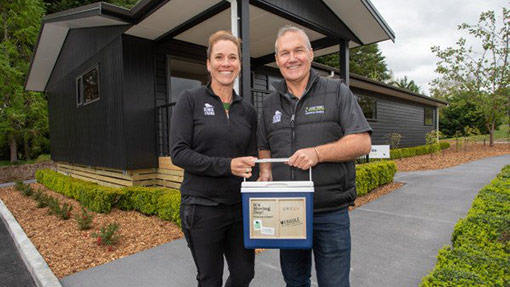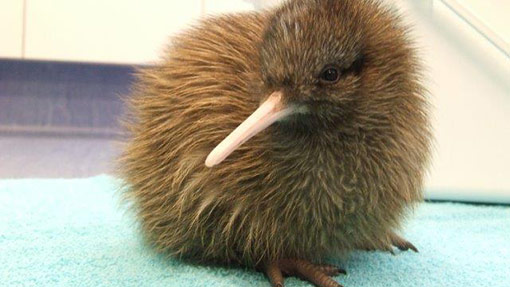“Kiwi numbers in Whangārei Heads wouldn’t be anywhere near where they are without the support of volunteers.”
Luke Ogle lives and breathes the environment. Born and raised in rural Northland, he spent a lot of time as a kid in the great outdoors, planting native trees and clearing possum traps with his family.
But it was adventures with friends on their larger properties and through large areas of forest that really ignited his passion for conservation – and the kiwi.
“Going into the bush with my mates and discovering pupurangi (kauri snails) and piles of kiwi poo was really exciting,” Luke says. “As a kid, knowing kiwi were out there even though I never saw them was really cool. I think that exposure to the bush as a young kid has helped build an appreciation for the uniqueness of our environment and how vulnerable it is.”
While Luke was at high school, he went out for a day tracking kiwi with his cousin who worked in kiwi conservation.
“Doing that trip was an eye opener,” he says. “It showed me the tools used in kiwi conservation and the problems that kiwi projects face every day. From that point onwards, I really wanted to do my bit to help the kiwi and the wider environment too.”
Fast-forward to 2022, and Luke lives in Whangārei Heads with his own family. After living overseas for 10 years, he threw himself into supporting both the environment and kiwi conservation when he returned home.
“When we bought our land, it was essentially five acres of bare paddock,” Luke says. “Over the last six years, we’ve planted over 2,500 native trees. Being able to transform that blank canvas into kiwi-safe habitat has been tough but rewarding. My dream is that a kiwi will wander onto our land and make itself at home here.”
And that’s not a far-fetched aspiration. Whangārei Heads is home to one of the densest kiwi populations in New Zealand, made even more unique because of how many humans live in the area too.
“I spend a lot of time outside in the evening and can hear kiwi all around our place. A kiwi would only have to walk 500 metres to get here so having good habitat and protection here is important. That would be a huge tick of achievement in my mind – and it’s actually a very likely outcome of what we’ve been doing here.”
But humans living so close to this taonga brings with it its own set of risks and considerations.
“Kiwi are everywhere here, so there are some things that people need to consider that they might not have to think about in other parts of the country,” says Luke. “Generally, people who live at the Heads understand and look after their dogs. But it’s frustrating when you see visitors to the area that don’t comprehend that kiwi could be literally just over the fence, while their dog is running down the main road or sniffing around at fences. There could be a bird right there and they have no idea.”
Luke and his family have made a conscious decision to put kiwi and other wildlife first.
“We have chosen not to have cats and dogs at our place because we don’t want them to impact the environment around us. That’s something that we try to speak to our neighbours or people who move into the area about too. Most people I know get their dogs kiwi avoidance trained too.”
Another consideration is the risk of water.
“A few locals have had kiwi drown in their swimming pools,” Luke says. “To help protect kiwi from drowning on our property, I make sure kiwi can’t get stuck in troughs when they’re looking for water. All that means is putting in a brick so a kiwi that does end up in there can stand on it and get out again.”
“My wife and I used to go out together and listen for kiwi. Now that we have kids, she’s happy to stay at home in the warm with them while I go out in the cold!”
Luke says volunteering is the lifeblood of kiwi conservation, particularly at Whangārei Heads.
“It’s inspirational how generous some people are with their time,” Luke says. “I see a lot of people around the place whose kids have moved on and they’re able to give more time to volunteering. Whether it’s weed work or predator control, you get rewards for it as a volunteer but also the community benefits from it so much too.
“Kiwi numbers in Whangārei Heads wouldn’t be anywhere near where they are without the support of volunteers. There’s 40-odd kilometres of traplines throughout the Heads and you can’t pay people to do that – it’s all the work of volunteers. It’s amazing.”
For Luke, the ability to volunteer more is a privilege.
“I’m pretty time poor at this stage of my life due to business and family commitments, but my goal is to do more volunteering like helping with local predator control.
“I think it’s important for everyone to give what they can back to their community and environment. Human beings have impacted the planet a lot. It’s a big job to restore it, but if people can do whatever they can, even if it’s small, it all makes a difference.”
